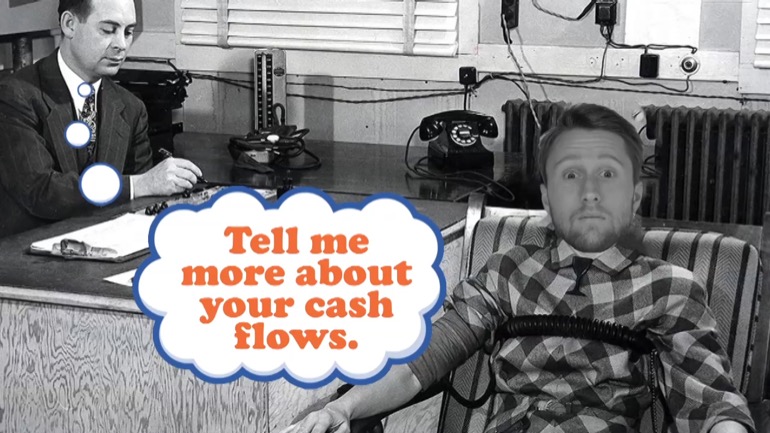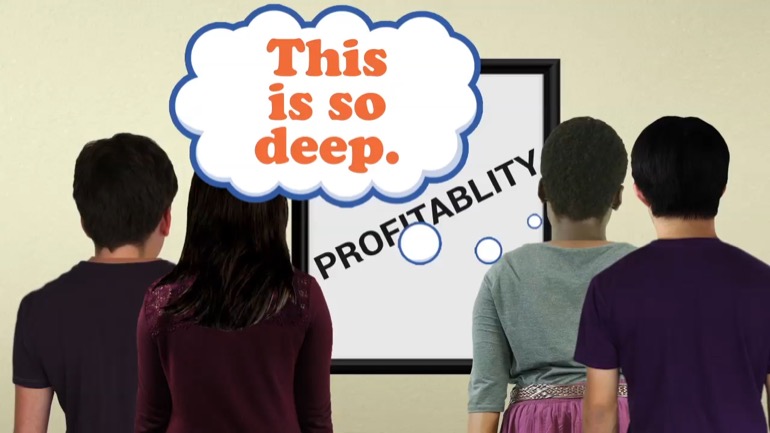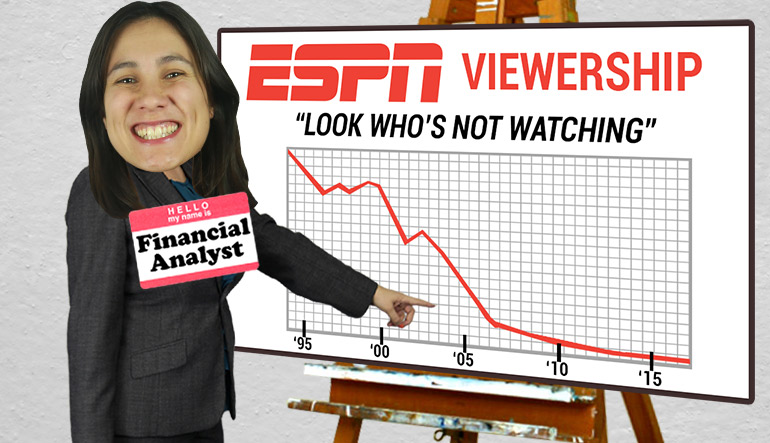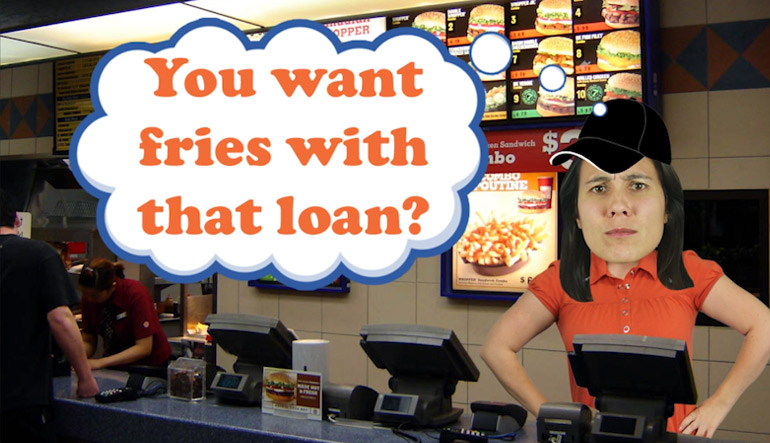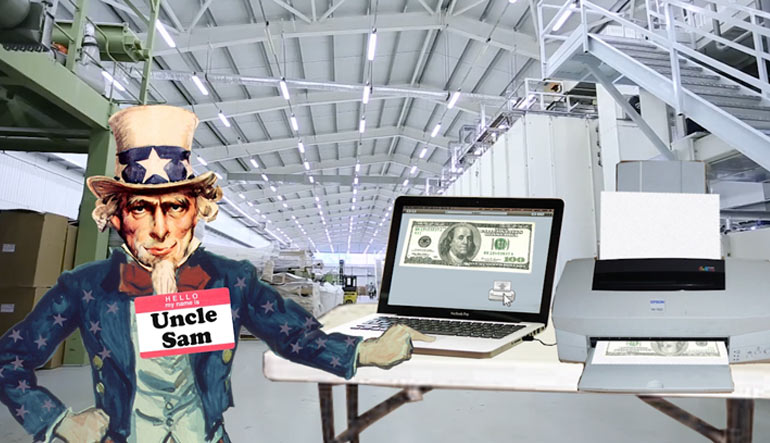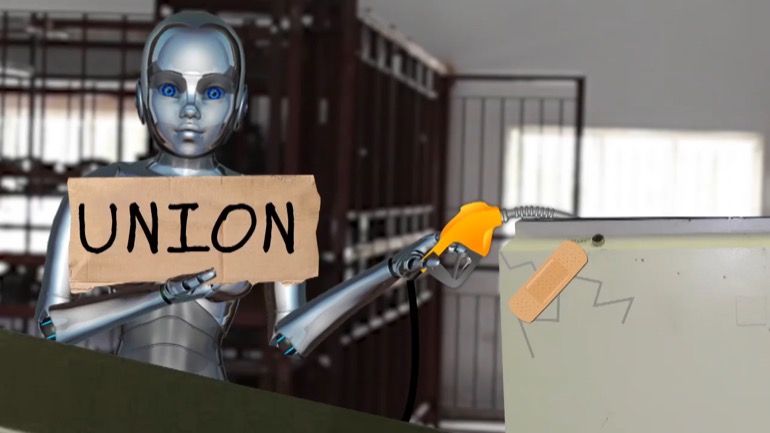ShmoopTube
Where Monty Python meets your 10th grade teacher.
Search Thousands of Shmoop Videos
Principles of Finance Videos 166 videos
How is a company... born? Can it be performed via C-section? Is there a midwife present? Do its parents get in a fight over what to name it? In thi...
Company Formation, Structure, and Inception: Unit Intro. Sorry, Leo DiCaprio fans—we're not going to be breaking down the plot of Inception. We'r...
Okay, so you want to be a company financial manager. It's basically up to you to make money for the shareholders. It would also be swell if you mad...
Principles of Finance: Unit 4, Planned Obsolescence: The Dumbest Idea in History 6 Views
Share It!
Description:
Planned obsolescence was the brilliant* (*denotes sarcasm) idea to purposefully build cars designed to fall apart in a few years. Yeah. Genius*.
Transcript
- 00:00
principles of finance. a la shmoop. planned obsolescence:the dumbest idea in
- 00:07
history. all right well for many companies
- 00:09
inventory is a huge part of their asset base. it comprises a giant share of their [boxes stacked in a warehouse]
- 00:16
capital or financial resources. it's a mess to manage all that inventory store
- 00:21
it track it and God forbid return it to its manufacturer if something goes wrong.
Full Transcript
- 00:26
well think about the production nightmare called the car industry in
- 00:30
1970. back then some geniuses created this thing that would become the death
- 00:34
of the dominance of the American car in the world. it was called planned
- 00:39
obsolescence and just like it sounds the manufacturers who actually graduated
- 00:44
colleges and earned degrees purposely made cars suck. huh? were they spies
- 00:50
planted to destroy the evil capitalists from the West? no they were homegrown. the
- 00:56
financial managers at the time had the arrogance that the US auto industry was
- 01:00
so powerfully dominant that nobody in the world would ever catch up and [men in suits think they have great ideas]
- 01:04
compete with us. we had so much room ahead of the Japanese Korean and German
- 01:08
car makers that while we could afford to make our cars worse. the problem with
- 01:13
American cars at the time? while they were lasting too long. instead of a 10 to
- 01:17
12 year cycle from birth to death the managers of GM Ford and the others
- 01:22
thought that if we created cars that died after 6 or 7 years, well then people
- 01:28
would be forced to buy more of them or rather buy them more often, and you can
- 01:33
bet that the legions of mechanics Midas muffler shops and other repair
- 01:37
areas were delighted with this notion and highly supportive of planned
- 01:41
obsolescence. unfortunately the US managers who made these decisions didn't [auto mechanics rejoice]
- 01:46
get out much, at least not to Japan or Korea. and you know what happened?
- 01:50
look out the window over your parking lots. see only American cars out there?
- 01:54
yeah not so much. well the rest is history because yada yada yada foreign
- 01:59
competitors smoked us a decade later with cars that were reliable cheaper and
- 02:04
lived for decades. the Japanese manufacturers were relentless in their
- 02:08
process of managing inventory, and unlike the environment in the US
- 02:12
where the supply of parts and services was a free-for-all highly competitive [men in a factory putting parts together]
- 02:16
market ,in Japan things were much more organized and cooperative. one magic
- 02:21
bullet invented by the Japanese in this era was this whole notion of
- 02:25
just-in-time inventory or JIT. the basic idea was that instead of storing 5000
- 02:31
sets of car tires in an assembly factory that would last three months, get lost
- 02:36
cost warehousing cost infrastructure space etc, JIT manufacturers would store
- 02:41
a dozen sets. the tires would sit 20 feet from the car and each day the tire
- 02:46
distributor would bring a new load. the tires arrived just in time to be
- 02:51
installed. that way if demand suddenly changed while the factory wasn't left [truck delivers tires as needed]
- 02:55
with 2000 sets of tires that fit a car nobody wanted to buy anymore. adjustments
- 03:00
to inventory in JIT manufacturing happened daily if not hourly, so mistakes
- 03:05
were dramatically minimized. JIT is a lot of things but for our purposes it's just
- 03:10
that: great inventory management. think about what this adjustment then does to
- 03:15
the metrics we've laid out so far. if sales are 10 billion dollars a year in
- 03:19
our inventory costs just went from two and a half billion to 250 million, our
- 03:24
turnover went from 4 X to 40 X. and more importantly think about the 2.5 billion
- 03:30
dollars of inventory - the 250 million of inventory equals two point two five
- 03:35
billion dollars in capital that would have been used to just own that
- 03:38
inventory. well now it's freed up. suddenly we get a whole lot better
- 03:42
management as massive excess capital and the ability to build new products and [professionals smile at each other]
- 03:48
build new features and buy supply chains and buy competitors and market and throw
- 03:53
a really big Christmas party while the whole nine yards. well the combination of
- 03:56
planned obsolescence mapped against foreign innovation like just-in-time
- 04:00
inventory encoder industry in the 80s. you know at least today we have Tesla. [fancy car pulls up]
- 04:09
[scream]
Related Videos
How are risk and reward related? Take more risk, expect more reward. A lottery ticket might be worth a billion dollars, but if the odds are one in...
How do credit card companies work? Credit card companies are, in a way, lenders. They give consumers a rectangular piece of plastic that allows the...
How do some accountants “cook the books”? Cooking the books refers to accountants making company’s financials look much better than they are....
How do you become incorporated? Go to Legal Zoom. Pay $150, file with the state of Delaware or whoever each year. Pay another $150. Most file as LL...
How do you get a startup funded? Depends if we're talking about a tech startup, or a non-tech startup. If you've got a promising, budding tech comp...



















































